What we heard from YOU on child online safety
Results show parents' concerns about their children's exposure to harmful content and lack of knowledge on online safety practices.
We have some exciting news to share! OpenMedia is thrilled to report back on the findings of our recent community survey regarding child safety online. The survey was sent to OM parents and guardians to identify core problems and concerns parents in our community face online. Our goal was to better understand parents' challenges in protecting their children online and to guide our advocacy work for parents and children.
We were blown away by the many thoughtful responses we received; thank you to those who participated! We understand the urgent need to prioritize online safety for our children, and by working together, we can make a significant difference. Your feedback is critical in helping us advocate for policies and practices that prioritize child safety online while respecting everyone’s fundamental rights.
The results of the survey were eye-opening. Here are some of the significant findings from responses so far.
Where are our kids using the Internet?
Despite press coverage of social media, far more kids from our community use the Internet for streaming devices (88%) than social media (40%).
This makes how those devices use, misuse and sell our kids’ data particularly important. Streaming services like Netflix are built on data about you, such as viewing history, geo-location, browser type, and more. All of these data points are used to construct a profile and feed that matches your interests and keeps you on service for as long as possible. Some streaming services even sell this sensitive information to third parties to track, profile, and target content to your kids. Ever watch a video, and suddenly a merch ad pops up?
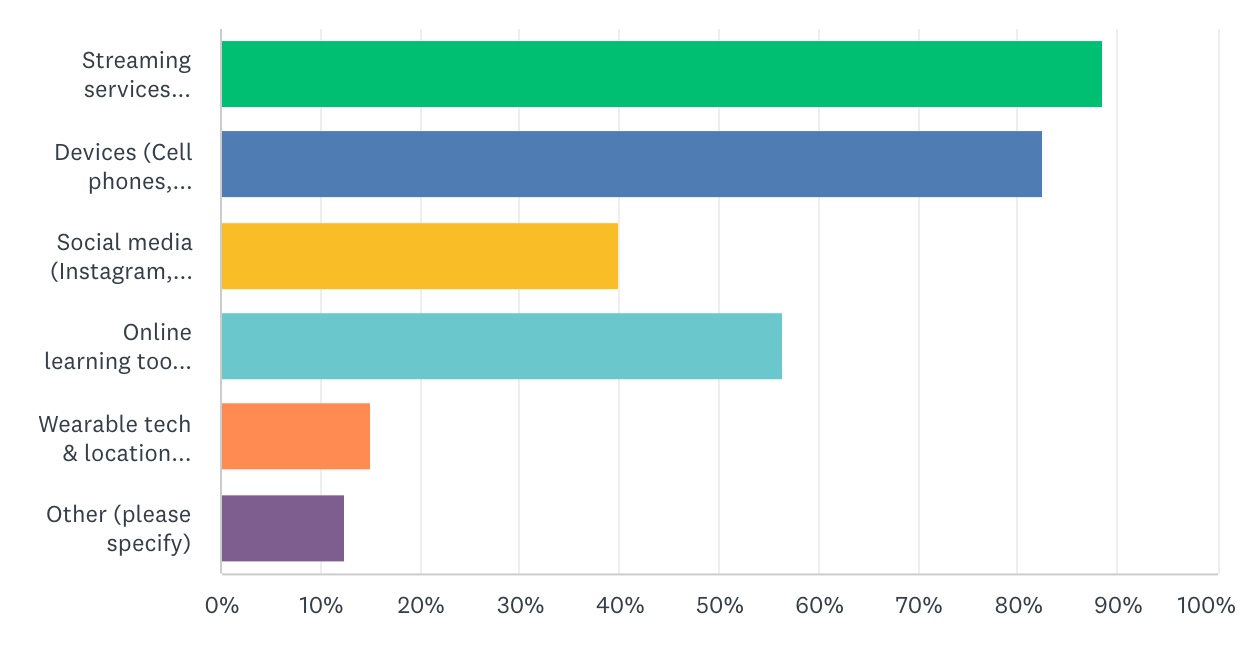
What are your biggest concerns about your children using technology?
Our survey participants had a lot of worries, but exposure to harmful content (75%) and addictive behaviours (71%) topped the list. That has us thinking - some countries are restricting so-called ‘loot box’ gaming patterns and other deceptive reward gaming structures. Should Canada be doing the same? These predatory practices encourage gambling and addiction and have other negative consequences, such as reduced productivity, social isolation, and physical and mental health problems. 65% of parents were also worried about technology interfering with sleep, exercise, homework, friends, and family activities offline.
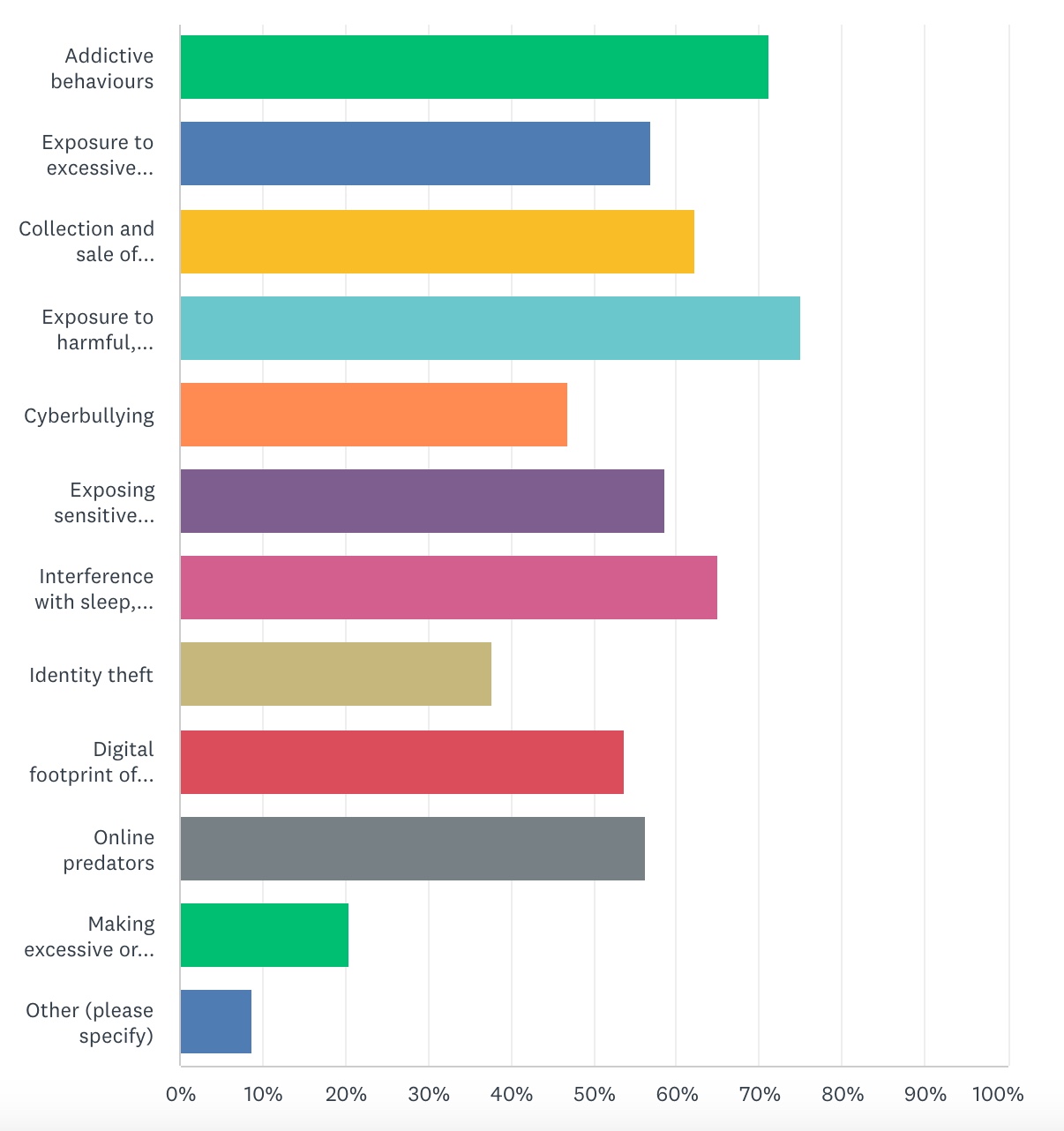
Do we know how to use your privacy and safety settings on platforms?
Kinda, sometimes! Over 53% said yes – but over 34% said only partially, or not at all.
There’s a strong need for more comprehensive information and resources to help people understand and utilize the privacy and safety features available on various platforms. Parents should be aware of all the potential risks of not adjusting these settings, such as exposing our personal information to the public, receiving unwanted messages, or becoming vulnerable to cyber-attacks. This is an area where OpenMedia can provide parents with more information and resources to understand their privacy settings better and advocate for stronger control. In the meantime, here’s some resources to get you started.
Where are we getting digital literacy help?
Friends and family, first and foremost. Nearly 60% of parents and guardians turn there. While this can be helpful, it's important to ensure that parents have access to accurate and up-to-date information from trusted sources.
Tech companies aren’t helping us out much. Only ~16% consider going to them to learn more.
We’re hoping to be a valuable resource for parents looking for guidance and support in this area.
Where are we getting digital literacy help?
Friends and family, first and foremost. Nearly 60% of parents and guardians turn there. While this can be helpful, it's important to ensure that parents have access to accurate and up-to-date information from trusted sources.
Tech companies aren’t helping us out much. Only ~16% consider going to them to learn more.
We’re hoping to be a valuable resource for parents looking for guidance and support in this area.
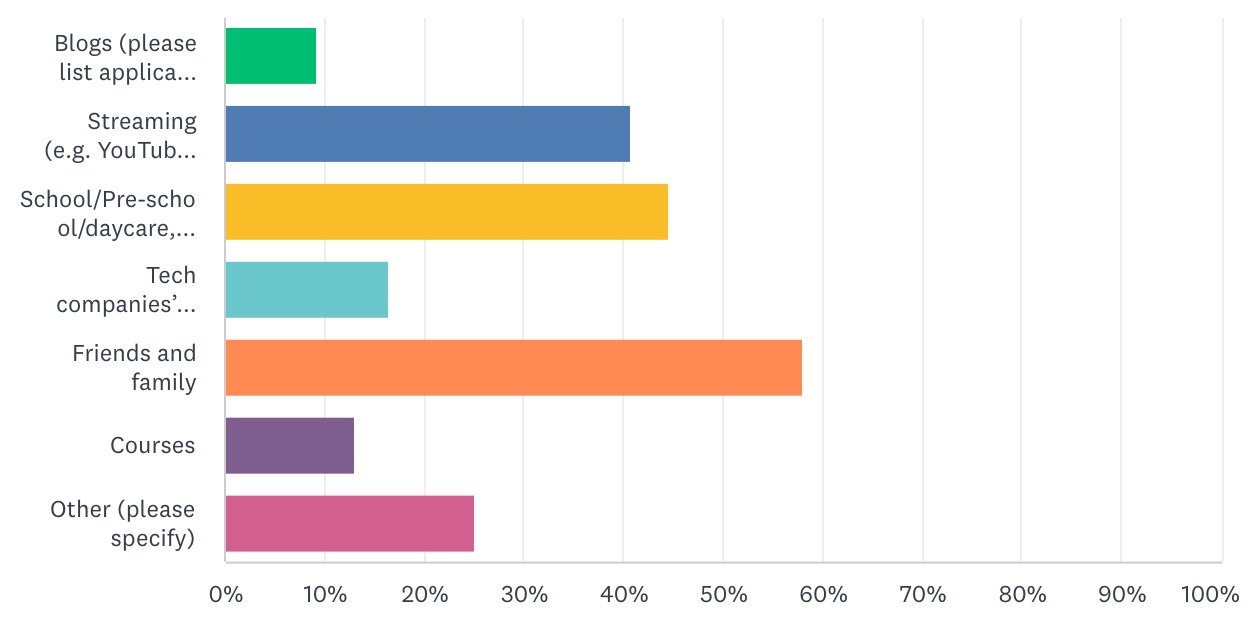
Do your kids know how to use age-appropriate privacy and online safety settings?
Mostly not! Over 70% said no, or only partially.
It's crucial that kids understand the risks associated with the Internet, especially as we go more and more digital. Age-appropriate settings are tailored to suit age, maturity, and the level of online activity. By understanding how these settings affect them, they can mitigate risk and protect themselves by creating strong passwords, safe use of social media, avoiding suspicious links and pop-ups, and using privacy settings to control who can access their information online. The government of Canada has indicated they are looking at legislating age-verification measures on adult content online. This could be a good thing for young people - provided the technical solution adopted doesn’t lead to surveillance or silencing of adults using the Internet. More from us on this once legislation is proposed.
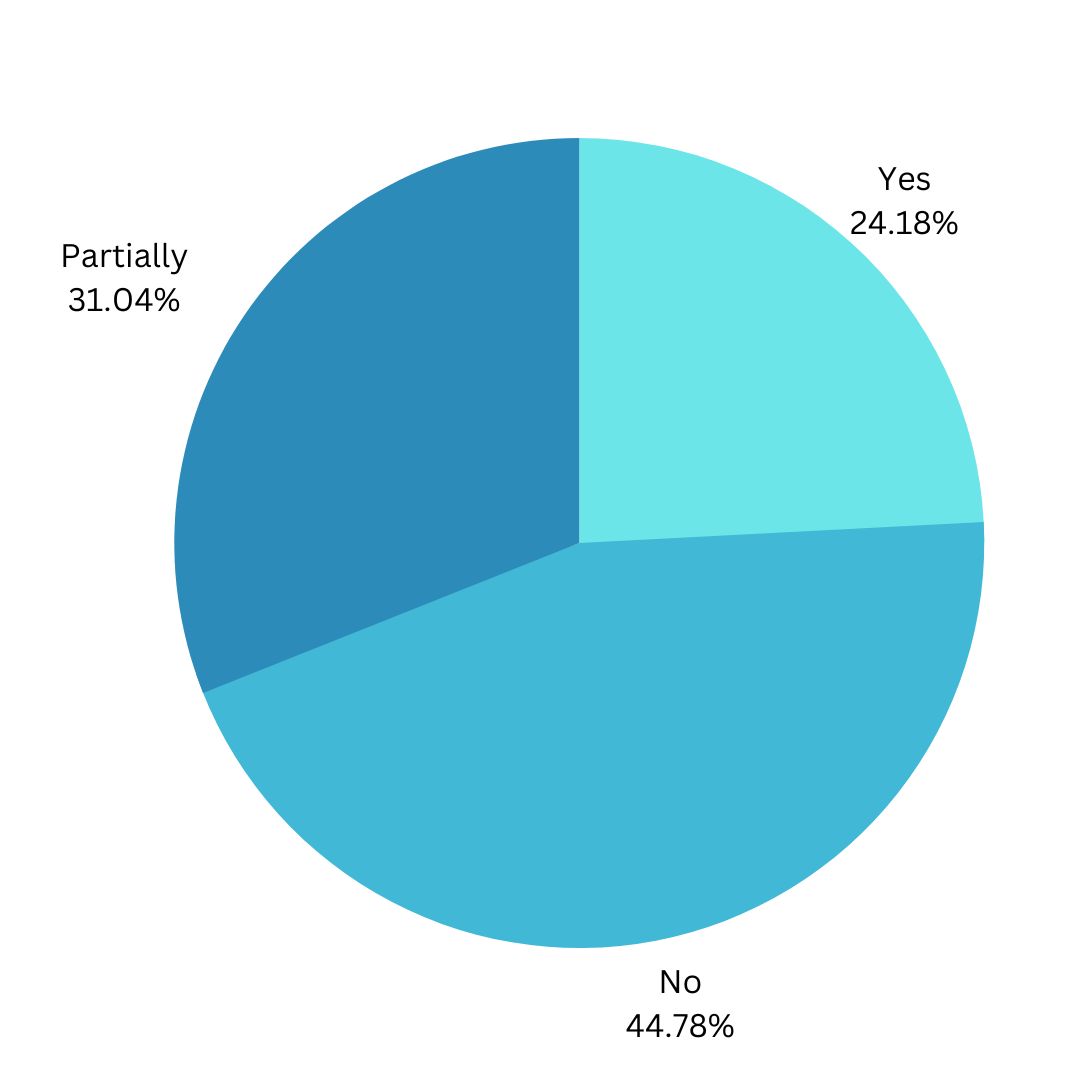
What’s next?
We want to empower parents to let their children safely explore the online world. This means providing parents with the tools and information they need to ensure their children's online experiences are positive and safe. We believe that by working together as a community, we can make a real difference in ensuring that our children are protected online.
We're grateful for our community's participation in this survey. Your feedback helps us better understand your priorities and concerns, strengthening our advocacy ability. We encourage you to continue to share your thoughts and insights with us. Email us at [email protected] with your suggestions on what we should tackle from here, and where you’d appreciate our support.
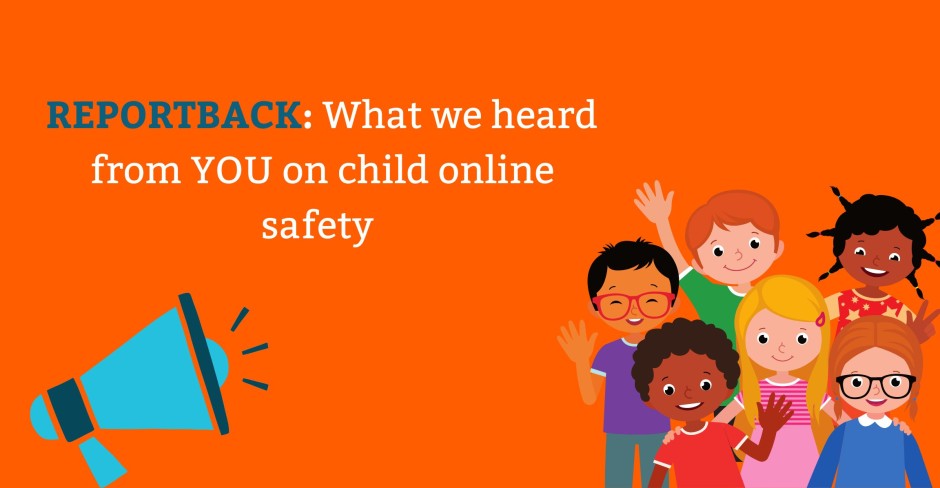

 Take action now!
Take action now!
 Sign up to be in the loop
Sign up to be in the loop
 Donate to support our work
Donate to support our work